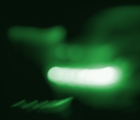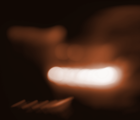
A lifetime of sax: Rick Flanagan of The Big Phat Horn Band
Author: Seamus Cowan
Published by: The Review-Mirror
For Rick, it’s all about bringing life to music that has been synonymous with the sax: rock ‘n roll, soul, blues and jazz; and he has had much success with all of it. He has been a mainstay sideman and bandleader on the Kingston scene for decades. The Cove stage welcomes Rick and his retro big band outfit, Big Phat Horn Band, featuring Michael K. Myers and special guest vocalist, Vanessa Head (a longtime popular Cove act) on Saturday, April 12, 2025 for a dinner and show! Details and reservations here: web link
Seamus Cowan: I don’t know your history Rick, and I should. Where did you learn to play music and how did you get onto the Tenor sax? Were you always a sideman playing that soulful music that we love to hear?
Rick Flanagan: I grew up in the small town of Prescott, Ontario, just 60 miles down the St. Lawrence River. I studied piano throughout elementary school and for a few years into High School. While in Secondary School I took up clarinet and in my second year also started playing the tenor saxophone with the school jazz band, which I loved. By the time I was 16 years old, I knew what I wanted to do for a living and upon graduation I moved to Ottawa which had a large music scene.
I was very fortunate that I found my way into a topflight touring soul band with a horn section. The other sax player had been playing professionally for about 20 years and he taught me a lot over the next 2 years. Our band worked 50 weeks a year, and about 35 of those weeks were on the road where you’d play one club for 6 nights and travel to the next city on the 7th day. We’d learn one or two new songs a week, straight off the record picking all the parts out by ear. When you’re learning at least 75 new songs a year, you tend to cover a lot of musical territory.
Needless to say, 2 years of this kind of rigour really helped any musician develop his craft, myself included. Of course these days, that type of road touring doesn’t exist anymore so musicians have to attend colleges or universities to gain in-depth experience. In my day, colleges and universities only taught classical music of which I had no interest at the time. I always encourage younger musicians to get as much post-secondary musical education as possible before trying to embark on a career in music. As to whether I was always a sideman, I started as one for my first 3 or 4 years in the business. I then went into the business of booking and managing bands, as I had a desire to understand what was going on in the business side of music. As I made this career change I also became a band leader and continued in that capacity until now.
During this time I worked during the day in my office duties and played music on weekends. All of this activity was in Ottawa. As an established booking agent I later moved to Montreal for 3 years to work in an agency which had been unable to crack the Ontario market. I opened it up for them with all my old customers. Eventually in 1983, I moved to Kingston and began playing here with The Fabulous Jaguars.
Q: I started watching you play at The Wellington in Kingston when you were part of the amazing blues act Blue Monday, with my first teacher and bass player Zak Colbert. It was around the peak of a fertile time in Kingston’s storied music scene. What has changed the most and what do you remember most fondly about that time?
Rick: You’re talking about the 90s and the thing which has changed the most is the number of venues which hire live music. We now have fewer places to play. You may remember that during the 90s, the wonderful guitarist Matthew Woodward was running The Live Music Lovers concert series in almost every room in the city for a full weekend. He did such a fantastic job promoting that all venues were packed and many rooms decided to run live music year round. My observation is that after this series came to a permanent end, one by one rooms stopped running live music.
Q: You are a humble man and you clearly appreciate the time you have had in your career in music. From Kingston to Memphis and back, opening for greats like The Doobies and The Neville Brothers, performing onstage with idols like Wayne Jackson and Jeff Healey, what are some of the greatest lessons you have learned?
Rick: I’ve been fortunate to play with Grammy winners, Academy Award winners and JUNO Award winners and the biggest lesson I’ve learned is to be humble about my gift of music. One of my heroes is Wayne Jackson of The Memphis Horns with whom I had the pleasure of playing with in Italy and also in the US, had played with Elvis, Aretha Franklin, Sting, The Doobies Brothers, Otis Redding, Sam & Dave, Issac Hayes and many others! I remember my wife and I hanging with him between a rehearsal and a show and he was so humble about his accomplishments. I will never forget that. Additionally, while in Italy I was working with Elvis Costello’s former band leader and the original tenor player in Tower of Power. Both men were humble and forthcoming with discussing music with me. I also played with Little Milton’s former band who had toured the world with him a few times. They welcomed me as one of their own and were very humble about their musicality. Another great lesson I learned was when I was hanging with Supertramp in a hotel room after a concert at the Montreal Forum.
How I got there is another story, but I had known Roger Hodgson for a few years. In fact, he had spent a night at my house. The party in the hotel suite was rather boisterous and then a hush came over it. I shut up to see what was up. “Good Vibrations” by the Beach Boys had come on the radio and all the musicians had to stop and listen to it. This was around 1977. After the song ended the guys in Supertramp were in awe at this mid 60s hit. I learned quickly then and there, that I should always keep an open mind to music which pre-dated me because Good music is Good music and should never be discounted. Even if it was your Father's music, lessons can always be learned from it.
The last great lesson I’ll talk about—and there have been many more—is to totally trust the music in yourself. It’s very difficult being on stage with someone like Jeff Healey, or another guy who has just finished touring with Carlos Santana, or a drummer from Whitesnake and Jefferson Starship. Or when you find yourself in front of an audience of 10,000 people and you remember you’re just a kid from Prescott, but in the end you have to overcome your fear somehow. I’ve learned the best way to do that is to close your eyes, let the music around you envelop you and just blow what you hear in your head, heart and soul. You can’t do any better than that, because that is your true musical self.
Q: You have been a founding member of some long standing Kingston acts that have brought an incredible vibe to the city and been committed to keeping the scene alive. Acts like Blue Monday, Soul Survivors and now Bight Phat Horn Band come to mind. What’s your favourite part of being in big acts like this?
Rick: Thanks for mentioning those 3 bands as I am proud that I formed them because they accomplished one of my goals which was to bring good music to the public, and I am a big believer of serving the public instead of myself. The second favourite part is that I was able to provide employment to musicians. Musicians need to work, but not all musicians can form bands and keep them running. I learned in my days as a manager and booking agent that there was a role for me, to help provide work for musicians.
Q: The Phats’ sets are full of interesting music that is super well known yet out of the ordinary in that you don’t hear it all the time or hear it arranged like the way you do. What is your approach to arranging and bringing these tunes to life? We look forward to hearing them soon!
Rick: Given the instrumentation of The Phats (6 horns, a rhythm trio and a vocalist) we can perform music from any decade we want to from the 20th and 21st century. Our oldest song is over 100 years old! Most of our material is from the 70s and 80s, as that is the music our audience appreciates. We don’t usually stick to horn band songs, like Chicago or Blood Sweat & Tears. In fact, we have very little of those bands. We tend to choose songs which were massive hits.
Lots of our repertoire comes from the Grammy Hall of Fame. If the songs don’t have horns in the original recordings, such as “Born to be Wild” by Steppenwolf, we’ll write horns in. Currently Dave Barton, my partner in the band is writing all of our arrangements and we’re very pleased with his work. We couldn’t ask for a finer local arranger. His arrangements are always challenging, imaginative, fun to play and listen to. For the previous 10 years, Dave and I collaborated on the arrangements.
We look forward to bringing the Phat sound to the Phans up in the Westport area! Posted: Apr 5, 2025











